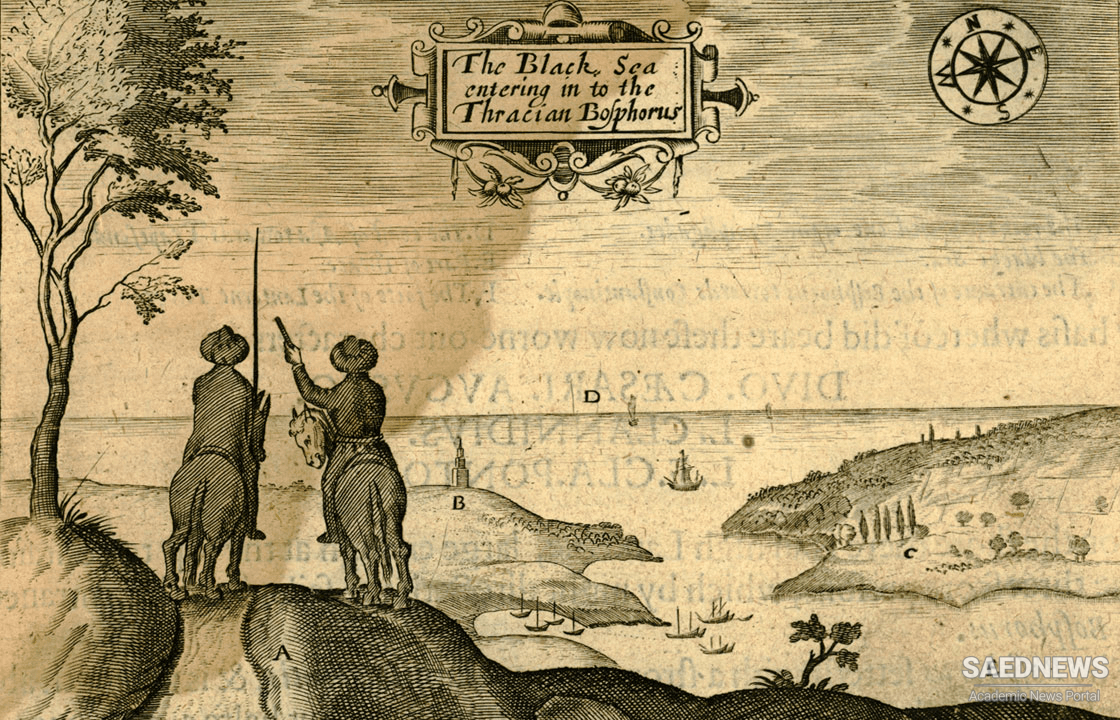In the fall of 1837, Sir Alexander Burnes, the British envoy to Dust Muhammad, arrived in Kabul. In May, 1836, an envoy of Dust Muhammad had been sent to Russia; as a result, Ian Vitkevich, an expert on Central Asian and Middle Eastern languages, was posted to Simonich. He was instructed to support the forming of an alliance between Tehran, Kabul and Kandahar ruled by Dust Muhammad’s brothers. Vitkevich traveled to Kandahar, whose rulers agreed to help the Shah seize Herat, which was ruled by their rival, Kamran Mirza. Vitkevich reached Kabul in December of 1837. At first, circumstances did not favor him, since Burnes had promised Dust Muhammad full British support in exchange for the opening of Afghanistan to British trade. Soon, however, the British government informed Burnes that he had exceeded his authority: Dust Muhammad was supposed to renounce his claims to Peshawar and not enter into negotiations with the Russian representatives. Disappointed, Dust Muhammad turned his attention to Vitkevich and expressed his support for the alliance with Iran and Kandahar. Happy with his success, Vitkevich returned to Tehran. In the summer of 1837, the Shah marched against Herat and put the city under siege.
Eldred Pottinger, a British officer, was among the leaders of the defense, while Simonich and other members of the Russian Mission tried to assist the Shah to organize the siege. In May 1838, the British government terminated its relations with Iran (the Shah withdrew from Herat in September of 1838)53 and started an active campaign, accusing Russia of plotting to take over India. British criticism concentrated on Simonich: he was blamed for instigating the Iranian army’s march on Herat, for organizing the anti-British coalition in Asia; in short, for jeopardizing the sensitive relations between the two countries. Unluckily for himself, Simonich had guaranteed the alliance between Tehran, Kabul and Kandahar in the name of the Russian Empire; Lord Palmerston, then the British Foreign Secretary, was determined to wreck the alliance. Russia tried to convince Britain that her actions had been misinterpreted and that Simonich and Vitkevich were not acting against the British. Simonich became a scapegoat, whose only fault was that he had acted too impetuously and ardently in implementing his instructions from St. Petersburg.
Diugamel’, who was appointed to succeed Simonich, describes his audience with Nicholas I, during which the new Russian representative in Iran received instructions from the Emperor. The instructions demonstrate the determination of the Russian government to maintain the status quo in Iran and its influence there while avoiding a direct confrontation with the British: You must follow the open and sincere way of action there and use the influence which rightfully belongs to us; at the same time, you should not put yourself in confrontation with the British. We share the same interests with the British in Persia. Both they and we want to preserve the present order of things and to strengthen the power of the [Iranian] government as much as possible in order to prevent the disintegration of the Persian monarchy, which could lead to many negative consequences . . . I want you to live in complete agreement with the British Mission . . . The march on Herat was undertaken not according to our will; but when we were told that the undertaking was for the purpose of punishing rebels, we answered that they had to be punished. The British are convinced of the opposite: they think that our influence can be found in everything happening in the Orient; you have to prove the groundlessness of these ridiculous accusations by your sincere actions.
Diugamel’ accuses Simonich of supporting the Iranians in the siege of Herat on his own initiative, and of being responsible for the estrangement between Russia and Britain that followed the siege. He states that it had been an axiom of the Russian Cabinet that it would pursue the same policy in Iran with the British: Therefore, only as a result of the exceptional circumstances and of the fact that in Tehran there was a Russian representative who followed ideas totally opposed to our traditional policy, the situation arose which I discovered when I arrived in Persia . . . The Russian Minister Count Simonich not only did not try to dissuade the Persian government from that rash enterprise [the siege of Herat] but went much further: together with his Mission, he accompanied the Shah to the walls of Herat and helped him with advice and money . . . The British government, which had followed the intrigues developing in Afghanistan with suspicion, came to the conclusion that the march against Herat had been undertaken at Russia’s insistence and would serve as the first step in the conquest of India.


 Russian military aims and activities in Iran
Russian military aims and activities in Iran














































